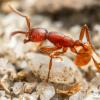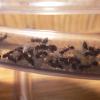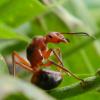I’m not trying to argue, I’m trying to present it in the way it was presented to me. I wanted to believe what you were saying now then, but there was no one who would openly support it.In this forum we are all here to share and learn, I know I am . WE all contribute our part. Please let no one here be upset or offended. AntDakota, you do NOT have to argue at all. I have noted your posts and enthusiasm for what you have contributed here, so keep it up. Believe me I have to have sit down with my professors and committee members and it can be so frustrating. Even to agree on a paragraph wording in a co-authored paper can be excruciating but it is the process. I hope we may all have that process here. When I was young I wished such things a forum as this one existed, but it did not, so I am appreciative and grateful for it. Through collaboration and listening so much may be had by all.Apparently, releasing captive colonies is VERY unethical and proving we DON’T CARE ABOUT THE ENVIRONMENT because releasing coloniesWho were you chastised by?
1. could potentially introduce disease
2. Captivity somehow affects colonies in ways that WE STILL ARE UNSURE OF
I’m sure if they were here they would be fuming reading this right now.
Not that I agreed with them, it made me angry, but there was nothing I could do about it.
- Formiculture.com
- Forums
- Gallery
- Members
- Member Map
- Chat






















